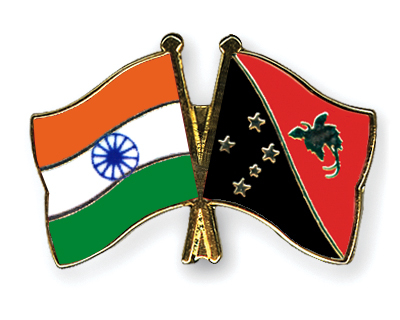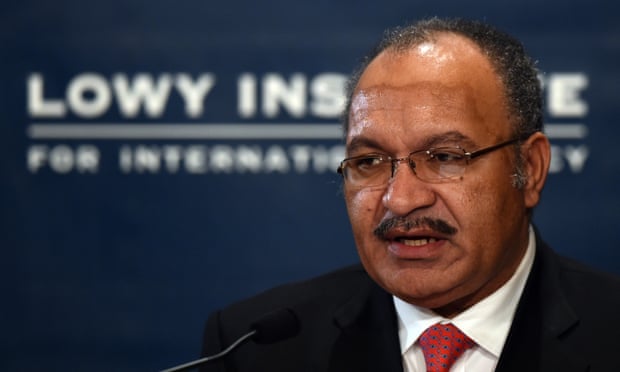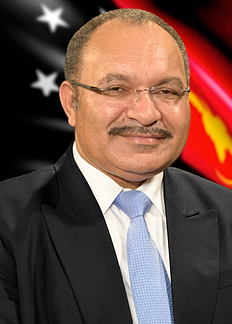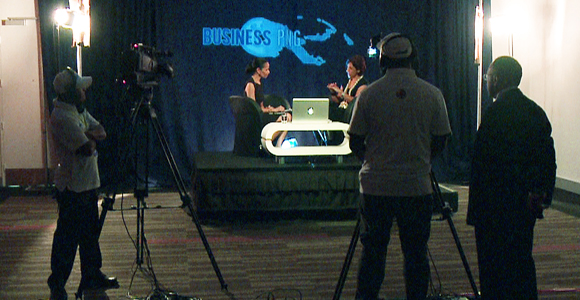 Papua New Guinea smacked Solomon Islands 58-19 to seal the Oceania Cup rugby title in style. The Pukpuks finished unbeaten in their three games in Port Moresby to go one better than their runners-up finish two years ago.
Papua New Guinea smacked Solomon Islands 58-19 to seal the Oceania Cup rugby title in style. The Pukpuks finished unbeaten in their three games in Port Moresby to go one better than their runners-up finish two years ago.The flag of Papua New Guinea was adopted on July 1, 1971. In the hoist, it depicts the Southern Cross; in the fly, a raggiana bird of paradise is silhouetted.
Port Moresby, Capital of Papua New Guinea.
Water falls are some of Papua New Guinea's attractions.
Papua Guinea is not only an island but is also a territory of fully independent people thus calling the island the Republic of Papua Guinea.
Culture Diversity, Colors, Culture Face, Annual Festivals, Traditional Dance, Traditional Costumes, Singing Dance.
 Papua New Guinea smacked Solomon Islands 58-19 to seal the Oceania Cup rugby title in style. The Pukpuks finished unbeaten in their three games in Port Moresby to go one better than their runners-up finish two years ago.
Papua New Guinea smacked Solomon Islands 58-19 to seal the Oceania Cup rugby title in style. The Pukpuks finished unbeaten in their three games in Port Moresby to go one better than their runners-up finish two years ago.
 InterOil Corp. proclaimed that the PRL-15 joint venture has commenced drilling a side-track well at the Antelope-4 site, as part of its appraisal campaign on the Elk-Antelope gas field in Papua New Guinea. The Antelope-4 appraisal had been deferred in May 2015 at a true vertical depth sub-sea of 2056m (6745ft), roughly 158m above the field gas water contact. Well operations, which restarted on 13 August, 2015, included the on-site preparation and testing of well-head equipment.
InterOil Corp. proclaimed that the PRL-15 joint venture has commenced drilling a side-track well at the Antelope-4 site, as part of its appraisal campaign on the Elk-Antelope gas field in Papua New Guinea. The Antelope-4 appraisal had been deferred in May 2015 at a true vertical depth sub-sea of 2056m (6745ft), roughly 158m above the field gas water contact. Well operations, which restarted on 13 August, 2015, included the on-site preparation and testing of well-head equipment.
 Papua New Guinea is preparing to host the Pacific Islands Forum leaders’ summit and celebrate 40 years of independence from Australia this month (September). These events are destined to be a high point in an imperative year for Papua New Guinea, imbedding its prestige as regional leader among Pacific island states and a confident emerging economy. Relations with Australia, a significant backer of Papua New Guinea’s regional leadership drives and economic growth, should also be at a high point.
Papua New Guinea is preparing to host the Pacific Islands Forum leaders’ summit and celebrate 40 years of independence from Australia this month (September). These events are destined to be a high point in an imperative year for Papua New Guinea, imbedding its prestige as regional leader among Pacific island states and a confident emerging economy. Relations with Australia, a significant backer of Papua New Guinea’s regional leadership drives and economic growth, should also be at a high point.
 The Prime Minister of Papua New Guinea, Peter O’Neill has thanked the Prime Minister of India for extending support in healthcare and education to Pacific Island nations, and offered Papua New Guinea’s support to India for proposed reform of the United Nations Security Council that would include India as a permanent member.
The Prime Minister of Papua New Guinea, Peter O’Neill has thanked the Prime Minister of India for extending support in healthcare and education to Pacific Island nations, and offered Papua New Guinea’s support to India for proposed reform of the United Nations Security Council that would include India as a permanent member.
 Oil Search is eyeing some of Santos' assets in Papua New Guinea for potential acquisition, including its stake in the $US19 billion ($26 billion) PNG LNG project, as it looks to take advantage of its balance sheet and the low oil price environment to add high-quality assets in its home market.
Oil Search is eyeing some of Santos' assets in Papua New Guinea for potential acquisition, including its stake in the $US19 billion ($26 billion) PNG LNG project, as it looks to take advantage of its balance sheet and the low oil price environment to add high-quality assets in its home market.
 THE federal government is seeking to clarify whether Papua New Guinea's recent import ban on fresh vegetables complies with global trade rules. PNG instituted the ban earlier in August with the aim of helping local enterprises.
THE federal government is seeking to clarify whether Papua New Guinea's recent import ban on fresh vegetables complies with global trade rules. PNG instituted the ban earlier in August with the aim of helping local enterprises.
 Papua New Guinea will boot out Australian officials working for its government by the end of the year.The Prime Minister, Peter O’Neill, told the PNG parliament he was concerned about foreign advisers spying while their presence caused local public servants to slack off.
Papua New Guinea will boot out Australian officials working for its government by the end of the year.The Prime Minister, Peter O’Neill, told the PNG parliament he was concerned about foreign advisers spying while their presence caused local public servants to slack off.
 An exceptional mollusc, hitherto feared extinct, has been recently discovered at the coast of Papua New Guinea. Environmentalist Peter Ward returned from the South Pacific in early August with news that he had encountered what he deliberates to be the world’s rarest animal. The University of Washington professor was part of the innovative discovery team that first found Allonautilus scrobiculatus, a“fuzzy, slimy” mollusc with an iconic twirled shell that's sometimes mentioned to as the crunchy nautilus, 31 years ago. It hasn't been spotted in nearly three decades – until now.
An exceptional mollusc, hitherto feared extinct, has been recently discovered at the coast of Papua New Guinea. Environmentalist Peter Ward returned from the South Pacific in early August with news that he had encountered what he deliberates to be the world’s rarest animal. The University of Washington professor was part of the innovative discovery team that first found Allonautilus scrobiculatus, a“fuzzy, slimy” mollusc with an iconic twirled shell that's sometimes mentioned to as the crunchy nautilus, 31 years ago. It hasn't been spotted in nearly three decades – until now.
 The Prime Minister, Hon. Peter O’Neill CMG MP, has outlined Papua New Guinea’s desire to see greater engagement by India with Pacific Island nations. Speaking at the Forum for India-Pacific Islands Co-operation (FIPIC) in Jaipur city, he said India’s outreach to Pacific Islands Leaders, led by Prime Minster Modi, is the first of its kind by an Indian leader or government. “I want to assure you that India has true friends in the Pacific and we appreciate the interest you show in our region,” PM O’Neill said at the Leaders’ meeting.
The Prime Minister, Hon. Peter O’Neill CMG MP, has outlined Papua New Guinea’s desire to see greater engagement by India with Pacific Island nations. Speaking at the Forum for India-Pacific Islands Co-operation (FIPIC) in Jaipur city, he said India’s outreach to Pacific Islands Leaders, led by Prime Minster Modi, is the first of its kind by an Indian leader or government. “I want to assure you that India has true friends in the Pacific and we appreciate the interest you show in our region,” PM O’Neill said at the Leaders’ meeting.
 The Prime Minister, Hon. Peter O’Neill CMG MP, has highlighted the way in which India has developed a strong cross-sectoral approach to strengthen its tourism industry.
The Prime Minister, Hon. Peter O’Neill CMG MP, has highlighted the way in which India has developed a strong cross-sectoral approach to strengthen its tourism industry.
 Prime Minister of Papua New Guinea, Hon’ble Peter O’Neill arrived in New Delhi, India on August 18, 2015. The Prime Minister along with a high level delegation arrived at Hotel Taj Palace in the evening. The Prime Minister then attended a dinner hosted by Essar Group of Companies.
Prime Minister of Papua New Guinea, Hon’ble Peter O’Neill arrived in New Delhi, India on August 18, 2015. The Prime Minister along with a high level delegation arrived at Hotel Taj Palace in the evening. The Prime Minister then attended a dinner hosted by Essar Group of Companies.
 New Zealand's Foreign Minister Murray McCully is to travel to Papua New Guinea and Solomon Islands this week leading a delegation of aid officials and business people.
New Zealand's Foreign Minister Murray McCully is to travel to Papua New Guinea and Solomon Islands this week leading a delegation of aid officials and business people.
 The prime minister of Papua New Guinea has hit out at warnings by economists about the country's fiscal position This follows the release of his own government's mid-year economic outlook, which revised the 2015 budget deficit from 4.4 percent of GDP to 9.4 percent, with revenue set to shrink by 20 percent this year. A former Australian official within PNG's treasury, Paul Flanagan, led the chorus of economists warning that the Peter O'Neill-led government must make tough choices about spending cuts or face a Greece-style fiscal meltdown.
The prime minister of Papua New Guinea has hit out at warnings by economists about the country's fiscal position This follows the release of his own government's mid-year economic outlook, which revised the 2015 budget deficit from 4.4 percent of GDP to 9.4 percent, with revenue set to shrink by 20 percent this year. A former Australian official within PNG's treasury, Paul Flanagan, led the chorus of economists warning that the Peter O'Neill-led government must make tough choices about spending cuts or face a Greece-style fiscal meltdown.
 A proposed law on a cross media ownership is currently being worked on by the government of Papua New Guinea.
A proposed law on a cross media ownership is currently being worked on by the government of Papua New Guinea.
 Australian assistance money to Papua New Guinea is being wasted on "middlemen", such as lawyers and consultants, PNG Prime Minister Peter O'Neill says. In a press release, Mr O'Neill said PNG wanted to safeguard that financial support develops real long-term capacity and skills, and not just temporary relief.
Australian assistance money to Papua New Guinea is being wasted on "middlemen", such as lawyers and consultants, PNG Prime Minister Peter O'Neill says. In a press release, Mr O'Neill said PNG wanted to safeguard that financial support develops real long-term capacity and skills, and not just temporary relief.